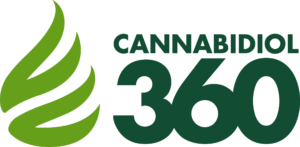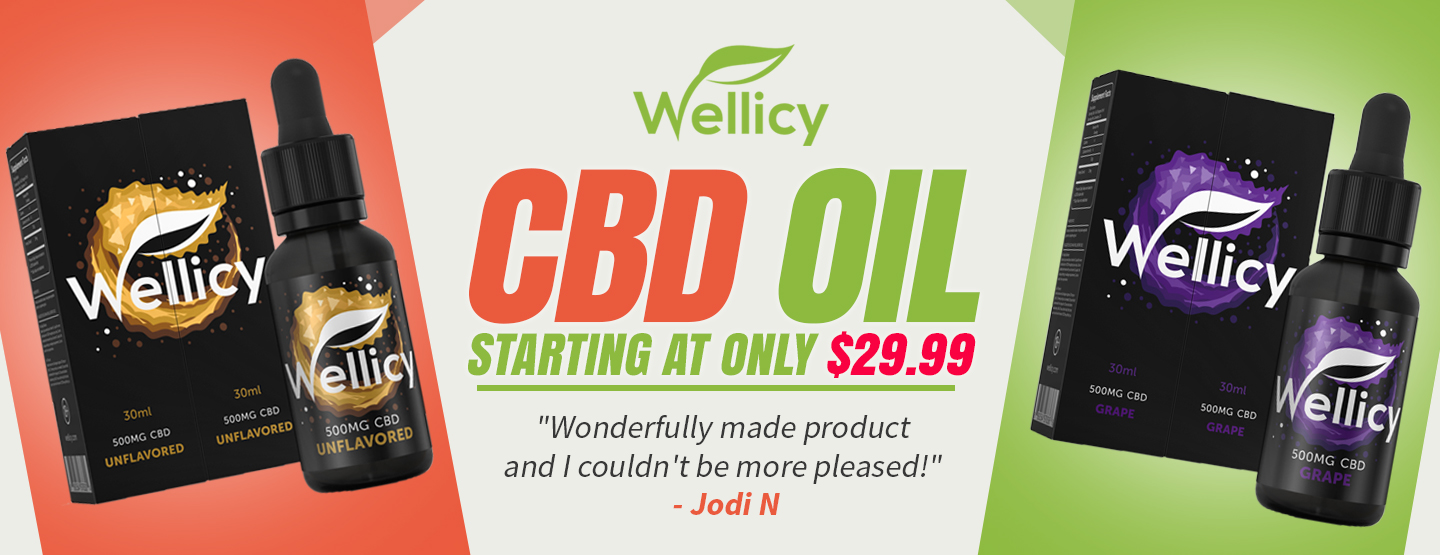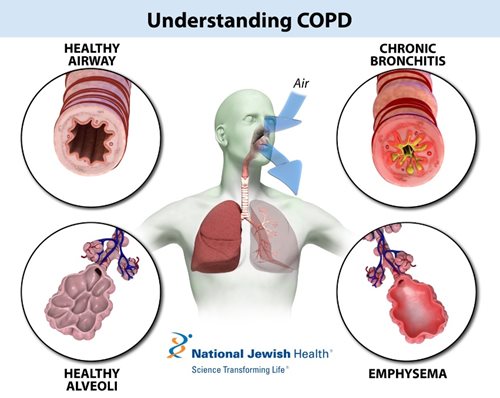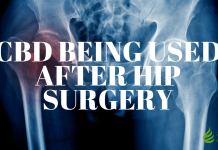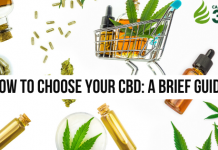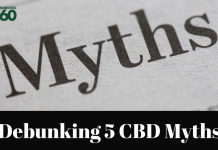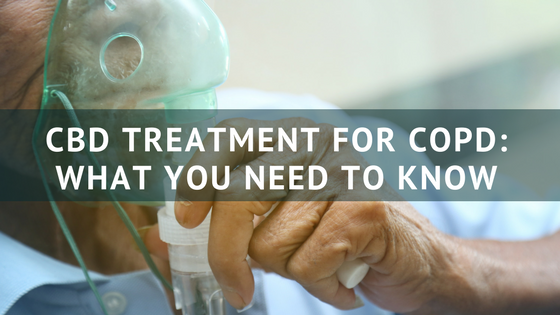
Chronic obstructive pulmonary disease or better known as COPD is the 3rd leading cause of death in the United States of America. COPD is an umbrella term that includes chronic bronchitis and emphysema.
In the United States alone, COPD impacts an astonishing 12.7 to 14.7 million adults, but it’s estimated that there may be as many as 24 million people with chronic obstructive pulmonary disease according to the ALA. Meaning many people are not diagnosed at all or being misdiagnosed for another condition.
There are varying treatments currently available on the market for COPD. But as research continues and the stigma around cannabinoids, specifically the fear that CBD gets you high, have begun to fade recently. Cannabidiol (CBD) is a becoming a promising holistic treatment for respiratory diseases like COPD.
What Are the Causes of COPD?
- Smoking Tobacco (Cigarettes, Pipes, or Cigars)
- Second-Hand Smoke
- Environmental/Workplace Pollutants
- Family Genetics
As mentioned above, the leading cause of chronic obstructive pulmonary disease is smoking cigarettes. But that’s not the only cause.
Other causes of COPD include exposure to second-hand smoke, family genetics (Alpha-1 Antitrypsin Deficiency), and environmental/workplace pollutants such as dust, fumes, and chemicals.
Associated Symptoms of COPD
- Worsening Levels of Shortness of Breath
- Wheezing
- Excess Mucus Production
- Chest Tightening
- Increased Levels of Fatigue
- Unwanted Weight Gain/Loss
- Chronic Cough
- Swelling in Ankles, Legs, or Feet
COPD often goes misdiagnosed as another disease, or symptoms may be attributed to simply old age or the common cold.
Just because you feel fine, does not mean your body isn’t struggling. If you commonly experience any of the symptoms mentioned above you should talk to your doctor about getting tested for COPD. Especially since COPD is a progressive lung disease, so leaving it untreated will allow this lung disease to worsen.
Not only are COPD symptoms worrisome, patients with this respiratory disease are also likely to experience episodes known as exacerbations. During a COPD exacerbation, your symptoms begin to worsen and can persist at this level for a few days.
The Impact COPD has on Your Lungs
COPD directly impacts the regular function of your lungs in more ways than one that make it increasingly difficult to breathe and complete simple daily tasks.
You see, when you inhale the air travels down your windpipe and into your lungs via two large bronchi tubes.
These tubes within your lungs break up into many smaller tubes (bronchioles) that end in tiny grape like air sacs called alveoli.
As a result of frequent levels of breathlessness, patients with COPD can experience difficulty performing their recommended levels of physical activity. And this allows the quality and function of your lungs to deteriorate even further.
The alveoli are made up of extremely thin walls of tiny blood vessels (capillaries), which allow the oxygen from the air you inhale to pass through into your bloodstream. While carbon dioxide is exhaled.
Without the presence of chronic obstructive pulmonary disease, both the alveoli and bronchial tubes are extremely elastic in order to help force air out of your body during exhalation. But when diagnosed with COPD it causes them to not only lose their elasticity but also cause them to over expand. Causing air to be trapped in your lungs after you exhale.
Worst of all, COPD is progressive so symptoms will continue to get worse, especially if they are left untreated.
Let’s now see exactly how COPD impacts your lungs:
- Airways Become Thick & Inflamed
- Lung Tissue Gets Destroyed
- Excess Mucus Production Obstructs Airways
- Both Airways & Air Sacs Lose Their Elasticity
How CBD Can Be Used to Treat COPD
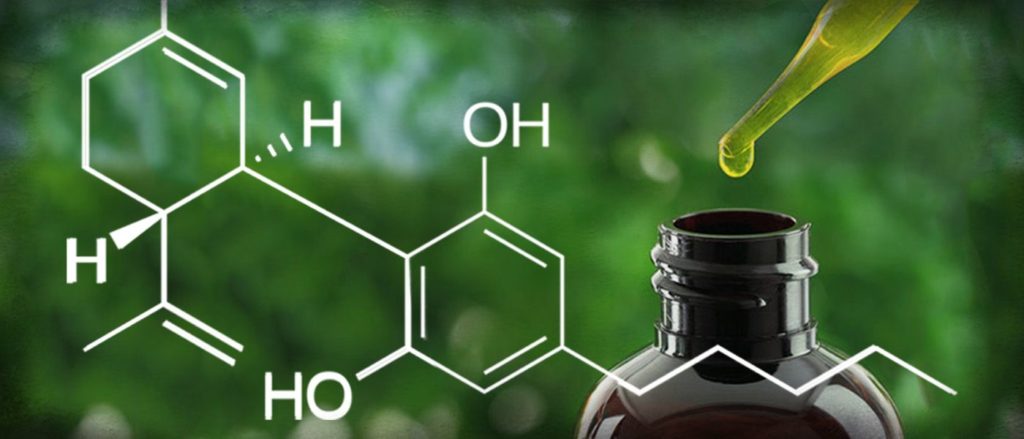
The most frequently experienced symptom of COPD is breathlessness (shortness of breath) due to inflammation of your airways.
CBD and other cannabinoids like THC, have been shown to be potentially beneficial for reducing airway inflammation in people with chronic obstructive pulmonary disease. Studies have also indicated that CBD could be used to combat acute exacerbations of shortness of breath.
Both CBD and THC have demonstrated in numerous studies their ability to provide anti-inflammatory benefits through varying mechanisms.
Specifically, both CBD and THC interact your body’s endocannabinoid system’s cannabinoid receptors, which are known as CB1 and CB2 helping your body maintain homeostasis. Through the activation of the CB1 and CB2 receptors it’s been shown to help reduce air inflammation.
Furthermore, another study concluded that cannabinoids such as CBD inhibit bronchodilatory effects. Which help to reduce airway resistance and allow increased airflow to reach your lungs. Although additional studies will need to be done, COPD and cannabinoids like cannabidiol are shown to offer promising results.
Benefits of CBD for COPD
- Reduced Airway Inflammation
- Bronchodilatory Effects
- Pain Relief
- Promotes Improved Sleep Quality
- Reduces Mucus Production
- Immune System Support
- Increases Appetite
If you or a loved one are diagnosed with COPD, we do not recommend that you consume CBD through a smoking medium.
As we want to minimize the worsening of your COPD symptoms, and smoking can lead to coughing which can further exacerbate your shortness of breath.
But don’t worry, there are numerous options for consuming CBD in varying types of products. Learn how to use CBD oil for COPD below.
Smoke-Free CBD Alternatives for COPD Patients
As chronic obstructive pulmonary disease is most commonly caused by smoking tobacco, we certainly don’t want to further irritate your lungs by smoking. As a cough attack induced by smoking can lead to worsening COPD symptoms through what’s known as an exacerbation. Instead try consuming your cannabidiol from one of these smoke-free alternatives.
- CBD Capsules – You can find both powdered and oil (similar to fish oil) CBD capsules.
- CBD Infused Gummies – These tasty edibles are infused with hemp derived CBD oil and are available in numerous flavors like tropical and sour.
- CBD Infused Topicals – This class of products include lotions, creams, and salves, which are infused with hemp infused cannabidiol oil. Topicals are used by rubbing on your body, typically on the direct area of pain.
- CBD Infused Tinctures – Tinctures are incredible, they can be used orally (sublingual) or added into your favorite food or beverage. Plus, CBD tinctures have minimal taste so you will hardly know it’s in your food or drink. Some tinctures are also flavored to help with sublingual usage.
- CBD Inhalers – Similar to inhalers use for treating Asthma or other respiratory diseases, CBD inhalers are loaded with nothing but CO2 extracted hemp derived CBD.
- CBD Crystals – Hemp derived CBD comes in either Full Spectrum or CBD Isolate, the latter comes in the form of crystals. These CBD Isolate crystals can be used to infuse your favorite foods or beverages with the power of cannabidiol.
Final Thoughts
As the research is still out on the overall effectiveness of CBD for the treatment of COPD, we highly recommend that you first talk to your doctor before beginning to use cannabidiol for treatment.
With that said, the research that has been done has shown some promising results in regards to the benefits of CBD for COPD treatment. As the interest of CBD continues to grow, further research will be done in the future that will hopefully uncover some incredible results.
Have you or a loved one used cannibidiol for the treatment of COPD? Let us know in the comments below about your experience, and any improvements you have noticed in regards to symptoms or even overall quality of life!
